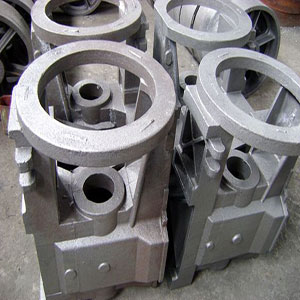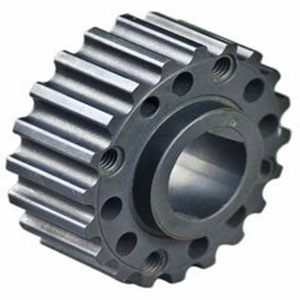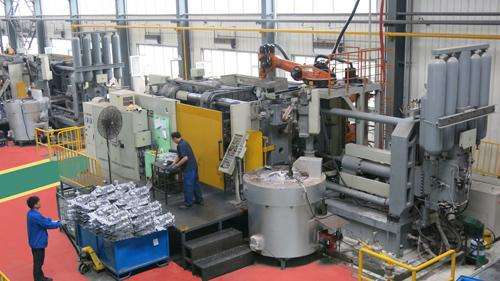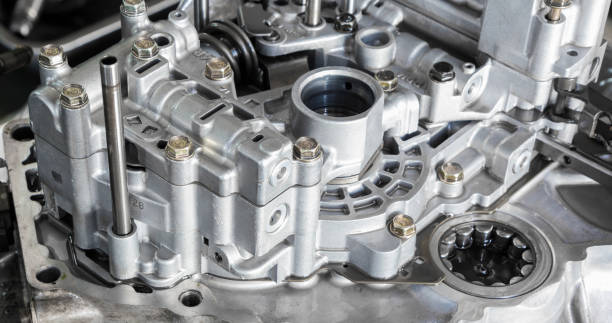What is Iron Casting?
Iron casting is a known procedure being done in manufacturing. This process involves melting material and poured into a mold. The hollow cavity in the mold helps achieve the desired shape of the product being produced. The material is then allowed to solidify so it will follow the pattern used. Once the material became solid, it will be taken out from the mold. This should complete the process. Iron casting is useful in producing different components that many industries can use.

There are different materials used for casting. Among these include metals and other materials that easily melt and cure when combined with other ingredients. The most commonly used materials are the clay, concrete, and plaster. If you want to achieve a complex shape or form, the cast iron is the ideal process to use.
Properties of Cast Iron
Cast iron shows different properties that make it beneficial for manufacturing. These properties are also the reason many industries prefer iron casting over other procedures.
- Hardness
It is resistant to abrasion and depression. It guarantees that the castings are scratch-free and smooth as needed.
- Fatigue Resistant
The material can withstand the highest level of stress at many cycles without breaking.
- Toughness
Cast iron is tough and robust. It has high capacities for energy. Its durability is reliable.
- Flexibility
It can change its form without breakage. This is useful, especially when making complex forms and designs.
- Elasticity
This allows the materials to go back to their original form after their deformation.
- Tensile Power
It allows the material to hold the highest level of longitudinal stress without breaking apart.
- Key Benefits of Iron Casting
There are many benefits iron casting can provide. These plus points make good reasons iron casting has become popular and in demand these days.
- Higher Level of Strength
Cast iron is robust. It appears to be stronger, more ductile, and stiffer than pure iron. Its strength makes it perfect in manufacturing different materials that industries can use. Cast iron’s durability is reliable in that they can efficiently use it in any complex design, shape, and size of the end product needed.
- Fluidity
The best thing about iron casting is that the materials are easy to melt. This allows fluidity to be at its best, making the process easy to do and achieve. It then saves time, money, and resources as the process can produce more products in a shorter amount of time.
- Useful
Cast iron is useful as it can mold it in different shapes, sizes and forms. Any industry will find iron casting purposeful for their needs. This allows design engineers to create more products that can be of higher efficiency for the industries.
Low Maintenance
Cast iron is durable and has properties that allow it to be as useful for a longer time. Its strength and flexibility make it require little to zero maintenance. Cast iron products provide longevity with no frequent replacement or repairs.
Types of Cast Iron
Cast iron has been widely used in commercial and consumer applications. Not known to many people, there are different types of cast iron.
1. Gray Cast Iron
This is the most common cast iron. They derived its name from the presence of small fractures which give the color gray in it. This is mostly used in many applications, especially for kitchen pans and other utensils.
2. White Cast Iron
It may not be as popular as the gray cast iron but it still has a lot of users. The iron compounds known as cementite caused its white appearance.
3. Ductile Cast Iron
The other term for this is nodular cast iron. Its ductility comes from the iron alloy with high levels of carbon.
4. Malleable Cast Iron
Engineers would call this type “workable cast iron”. It uses heat in making an end product.
Iron Casting Methods
There are different methods used to produce iron castings. They based the choice of method to use on the type of product to be made.
Sand Casting
This method is also known as sand molded casting. This method involves the use of non-reusable sand molds. Sand casting can produce different cast iron components in varieties of forms, shapes, and sizes.
Lost Foam Casting
This method takes on the evaporative-pattern concept. It uses foam for the patterns. Because of the low boiling point of foam. The major benefit of Lost Foam Casting is that the process becomes faster and easier to finish.
Common Applications of Cast Iron
The applications of cast iron can be vast. A lot of industries benefit from it which is why its popularity and demand in the market remained in good standings. Among the common applications of cast iron include:
- This is used in making anchors for ships
- It is useful in pipe production
- It can be used in making automotive parts,such as gear
- This is most useful in producing pots and other kitchen utensils
- It is used in making some household appliances and tools

Cast iron provides a lot of purposes for different industries and trades. Design engineers rely on this process because of its efficiency. Today, there are a lot of iron casting providers in the market. Choosing the best company will give you the best cast iron services you will need.
Iron Casting Manufacturer and Supplier
JC Casting is a leading investment casting company that has been in operation since 1997. Our years of experience have provided clients with the best services and products. Today, we are already a known cast investment company serving different countries. We are exporting to countries like America, Japan, Germany, and many others. JC Casting caters to different materials from alloy steel to aluminum. We offer vast varieties of designs and forms that industries and businesses can make use of.
JC Casting takes pride in the quality of products and services we offer. We deliver only the best at rates that are reasonable for our clients. Customer satisfaction is our primary goal in JC Casting.
For inquiries and quotes on our casting products and services, please contact us through phone at +86 181 05467890. You can also send us an email at [email protected]. We’d be happy to assist you.


